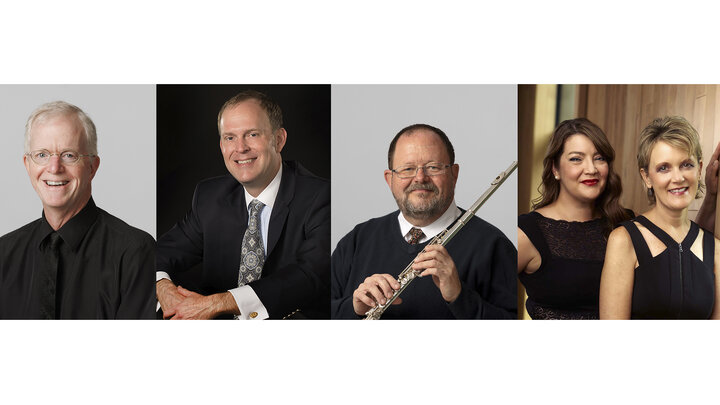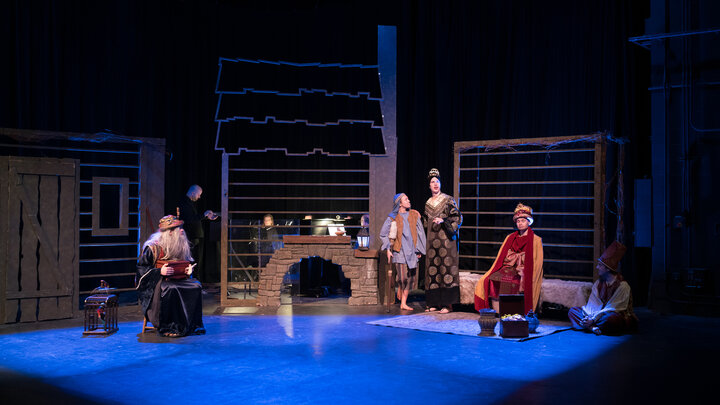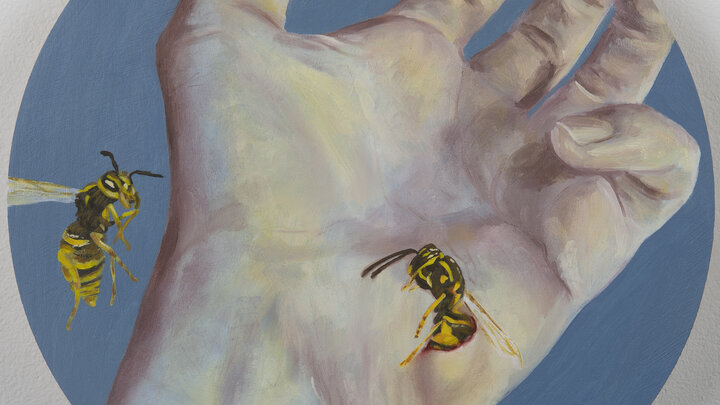Lincoln, Neb.--The Glenn Korff School of Music presents a concert titled “Concert Music of Ernest Gold” on Thursday, Feb. 13 at 7:30 p.m. in Westbrook Music Building Rm. 119. The concert is free and open to the public. Webcast on Nebraska Public Media: https://nebraskapublicmedia.org/en/series-media/glenn-korff-school-of-music-video/standalone-video-15995/concert-music-of-ernest-gold-50026250/ Program link: 021325 Concert Music of Ernest Gold-FINAL.pdf
Gold was an Austrian-born American composer and one of Hollywood’s most successful composers, most noted for the 1960 film “Exodus,” which won an Academy Award for Best Scoring of a Dramatic or Comedy Picture and a Grammy Award for Best Soundtrack Album or Recording of Music Score from Motion Picture or Television.
Gold’s other credits included “It’s a Mad, Mad, Mad, Mad World,” “Inherit the Wind,” “Judgment at Nuremberg” and “Fun with Dick and Jane,” among others.
But the focus for this concert is his concert music, which Professor of Viola Clark Potter has been researching.
“My interest in the music of Ernest Gold had a very interesting beginning,” he said. “In 2015, I received a call out of the blue from a musician and publisher in Kansas asking if I would be interested in performing the world premiere of a 70-year-old viola sonata by an Oscar-winning film composer. I said yes immediately, and he responded, ‘Don’t you want to see the music first?’ I said, ‘Sure, send it, but I’ll definitely do this.”
In April 2017, Potter and Professor of Piano Mark Clinton gave the premiere of Gold’s “Sonata for Viola and Piano,” written in 1946. They later performed the piece at the convention of the American Viola Society in Los Angeles.
“I invited Mr. Gold’s two daughters to come to the performance, and we went out to dinner after the concert,” Potter said. “It was at the restaurant where I gained a heightened interest in investigating other concert music by their father. The family has been very helpful in my research ever since, including allowing me to transcribe six hours of Mr. Gold talking into a microphone in the early 1990s, telling the story of his life. I do think this is just the beginning of my investigation into Gold’s music, and I’m hoping that I can interest some publishers in the music as well.”
Gold left a lot of music and artifacts at the National Film Music Archive at Brigham Young University, and Potter received a Hixson-Lied Faculty Development grant to visit the archive in the summer of 2023.
“At the archive I found a couple dozen pieces that I did not know existed, including some of the music which we will perform on this recital,” Potter said. “I’m grateful to my friends who are joining me to present this music.”
Richard H. Larson Distinguished Professor of Music (Flute) John Bailey and Clinton will perform Gold’s “Sonatina for Flute and Viola,” which is one of only two previously published pieces on the program. The other published piece is his “Songs of Love and Parting,” which will be sung by Richard H. Larson Distinguished Professor of Music (Voice) Jamie Reimer Seaman and pianist Stacie Haneline.
Clinton and Potter will again perform the viola sonata.
“The rest of the music was found at the archive, and I really don’t know if any of it has ever been performed or even seen by many people,” Clark said.
Reimer Seaman and Hanline will perform selections of his “Song Suite” (“for Marni”), composed for his wife, Marni Nixon, a soprano and the ghost singer for featured actresses in several musical films, including Deborah Kerr in “The King and I,” Natalie Wood in “West Side Story” and Audrey Hepburn in “My Fair Lady.” This music was in the archive in manuscript form.
Finally, Clinton will perform two pieces for solo piano, “Variations on an Original Theme” and the two-page “Prelude.”
“I cannot wait to hear these two pieces,” Potter said.
Potter said Clinton is completely immersed in Gold’s music and style, after spending much of the winter break working on the four pieces he is performing.
“He is really enjoying the music and is very excited to perform this music,” he said.
Clinton said he’s looking forward to revisiting the viola sonata.
“That piece is perhaps the most dramatic on the program,” he said. “It’s just absolutely full of tension and drama, and at the same time, there is this sublime beauty in the slow movement—absolutely transcendent moments in the slow movement. I think you have to start by understanding that Ernest Gold was a film composer, and you can see why when you listen. It’s because he has a sense of pacing and dramatic tension and release and a sense of color. I’ve fallen in love with the music. He has all of these attributes that make him a good film composer, but he’s a highly trained composer in the classical style.”
The solo piano pieces that Clinton is playing also existed in the archive only in the composer’s handwriting.
“Thankfully he has really good handwriting,” Clinton said. “But it’s still much more difficult to read than a standard printed score.”
The first solo piano piece is “Variations on an Original Theme.”
“He wrote this lovely theme, and it’s harmonically recognizable, so it’s listenable for audiences,” Clinton said. “But there are all kinds of twists that make it surprising at times and unusual. He filters it through all different kinds of lenses, different tempos. He turns it into a minor. He puts the theme in different voices. There are virtuoso variations, lyrical variations. There are ones that are like dances. It’s really good. That’s the piece I said to Clark deserves to be in the standard repertoire because it’s really fantastic.”
The other solo piano piece, “Prelude” was written in 1941 shortly after Gold came to the U.S.
“It’s about two pages, a couple of minutes long. I’m not a jazz expert, but to my ear, it sounds like something if Erroll Garner would come back to life and sit down at the piano,” Clinton said. “It sounds like that kind of jazz improv, which tells you again that Gold was just such an incredible musician that he could imitate and absorb other styles and make it absolutely his own.”
Potter said many of the pieces on the program could possibly be called “premieres,” though he can’t be entirely sure.
“I was not able to find any record of performances of much of the music on the program, which makes this concert really fun and meaningful,” he said.
Clinton said, “This is music that people will enjoy listening to.”



